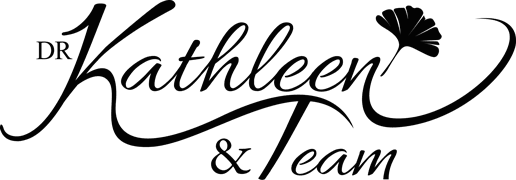Greetings, hay fever warriors! As the southern hemisphere awakens to the beauty of spring, many of us find ourselves sniffling and sneezing due to those pesky springtime allergies. If you’re tired of relying on antihistamines that can leave you drowsy, it’s time to explore a different path. Let’s delve into how functional medicine can help you conquer spring allergies naturally without compromising your vitality. Say goodbye to those tissues, and hello to a vibrant, allergy-free season!
Understanding Functional Medicine and Allergies
Functional medicine takes a holistic view of allergies, recognising that they often stem from imbalances within the immune system and the body as a whole. Instead of simply suppressing symptoms, functional medicine aims to address the root causes of allergies, allowing you to enjoy spring with a clear nose and a joyful heart.
- Enhance Gut Health for Immune Resilience
Did you know that a significant portion of your immune system resides in your gut? Functional medicine highlights the importance of gut health in managing allergies. Probiotics, found in foods like yoghurt and fermented vegetables, can help restore the balance of gut bacteria, enhancing your body’s immune response and reducing allergic reactions. Certain strains of probiotics can lower histamine, while others can heighten it; consult with our team to be guided as to the best probiotics for your situation. - Quercetin: Nature’s Antihistamine
Quercetin, a natural compound found in fruits and vegetables like onions, apples, and berries, is a powerful antihistamine. It inhibits the release of histamine, the compound responsible for allergic reactions. Consider incorporating quercetin-rich foods into your diet or exploring quercetin supplements under the guidance of a functional medicine practitioner. - Nourish with Vitamin C
Vitamin C isn’t just for boosting your immune system; it also possesses antihistamine properties. Load up on citrus fruits, bell peppers, and leafy greens to reap the allergy-fighting benefits of this essential nutrient. - Omega-3 Fatty Acids: Inflammation Fighters
Omega-3 fatty acids, commonly found in fatty fish like salmon and flaxseeds and supplementation, possess potent anti-inflammatory properties. By reducing overall inflammation in the body, omega-3s can help alleviate allergic reactions and provide relief from seasonal allergies. - Stinging Nettle: Nature’s Sneezing Solution
Stinging nettle, an herb with a prickly reputation, has been used for centuries to calm hayfever. It contains compounds that naturally block histamine receptors, reducing allergy symptoms. Nettle supplements or teas can be a valuable addition to your allergy-fighting arsenal. - Butterbur: A Breath of Fresh Air
Butterbur is another herb with a history of combating allergies. Its active ingredients can help inhibit the release of histamine and reduce nasal congestion. When choosing butterbur supplements, opt for those that are certified free of pyrrolizidine alkaloids, which can be harmful to the liver. - Local Honey: Sweet Relief?
While scientific evidence is limited, some people find relief from seasonal allergies by consuming raw local honey. The theory is that trace amounts of pollen present in honey may help your body build tolerance to allergens. Incorporate a spoonful of local, raw honey into your daily routine, but remember that individual responses may vary. - Vitamin D and Immune Balance
Vitamin D is crucial for immune system regulation and balance. Spending time outdoors in the sunlight, eating vitamin D-rich foods, and considering supplements under the guidance of a functional medicine practitioner can support your immune response and help manage allergies. - Herbal Teas for Soothing Symptom Relief
Peppermint, chamomile, and ginger teas are not only delicious but can also offer relief from allergy symptoms. Peppermint helps with congestion, chamomile has anti-inflammatory properties, and ginger can soothe a scratchy throat. - Anti-Inflammatory Diet: Your Ally Against Allergies
Functional medicine emphasises an anti-inflammatory diet to reduce overall inflammation in the body. Focus on whole foods, plenty of fruits and vegetables, lean proteins, and healthy fats. Minimise processed foods, sugar, and refined grains to support your body’s natural allergy defence mechanisms.
As spring blankets our environment with blooms, don’t let allergies keep you from fully enjoying the season. Functional medicine empowers you to address springtime allergies at their roots, offering a natural approach that honours your body’s innate wisdom. From immune-boosting nutrients to herbal allies, there’s a plethora of tools at your disposal. Remember, individual responses can vary, so working with a functional medicine practitioner will ensure a tailored approach that suits your unique needs. Here’s to a spring filled with the vibrant colours of nature and the vibrant health you deserve!



